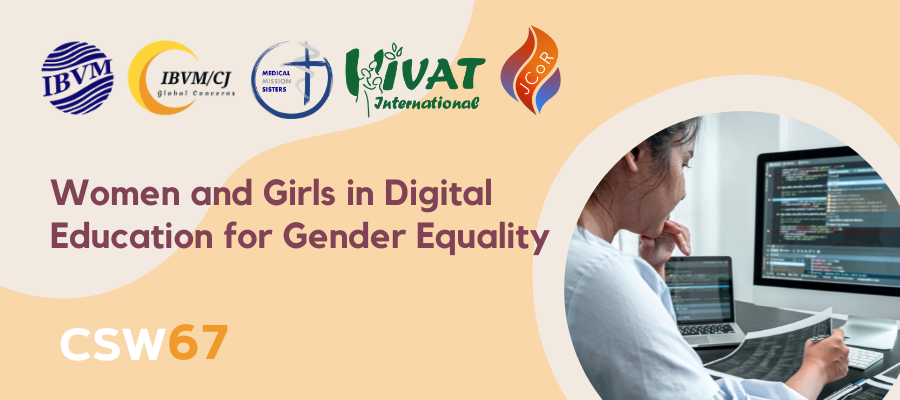
Technology and its innovations are used in a number of ways to both positive and negative effect. It is used for efficient and wide-reaching dissemination of knowledge in forms of distance learning and online education that foster inclusive learning environments. It provides inclusive spaces for people to share experiences and concerns and allow people to develop connections and social circles which might not be possible otherwise. And yet, halfway through the Sustainable Development Goals 2030, a digital gender divide persists with most of the 2.7B people who lack access to the internet being women and girls.
In collaboration with VIVAT International, Medical Mission Sisters and JCoR, we hosted a parallel event during CSW 67 at the JCoR virtual exhibition hall on the role of digital education in accelerating gender equality. The panel of speakers from our network including Leonida Kwamboka Oriki IBVM from Kenya, the Executive Director of Women for Women in Afrika, her former student, Mary Selina Munala and current Loreto India student, Aparajita. They were joined by other women leaders, students and youth who shared about the issues they faced and gender sensitive solutions addressing the gender digital divide.
We heard from the speakers about the numerous obstacles they faced in accessing technology. These included the lack of digital literacy and skills; access to affordable computers, internet and electricity; privacy and safety awareness; and the prevailing “gender social norms” that hinders not only their access to hardware but also to STEM education.
The webinar highlighted what young women are able to achieve when barriers to technology are removed. With access to digital technology and education, these young women and girls were able to fulfill their potential, contribute to their community, became leaders and were able to participate in the decision making process.
Watch a recording of the webinar HERE.
